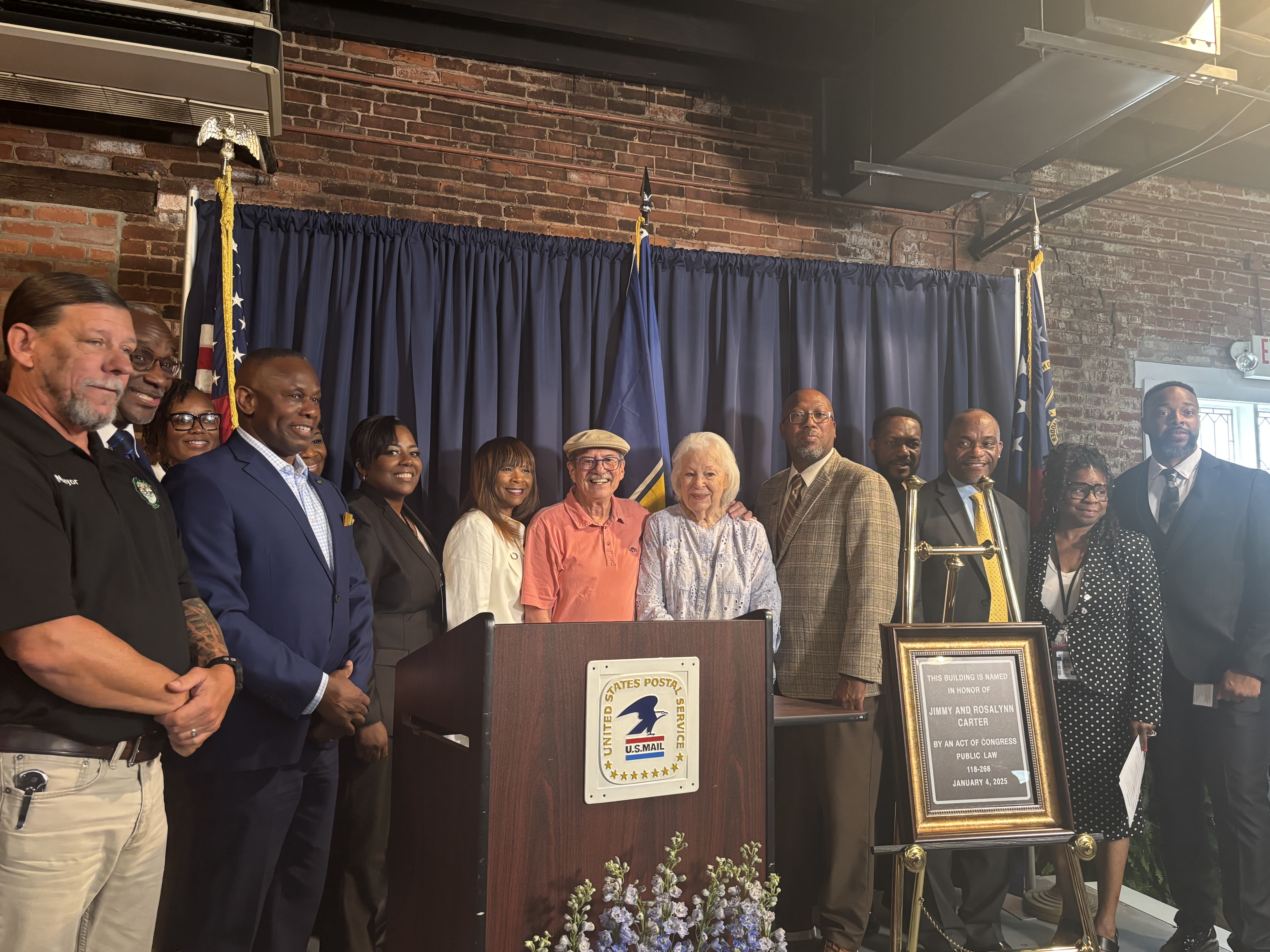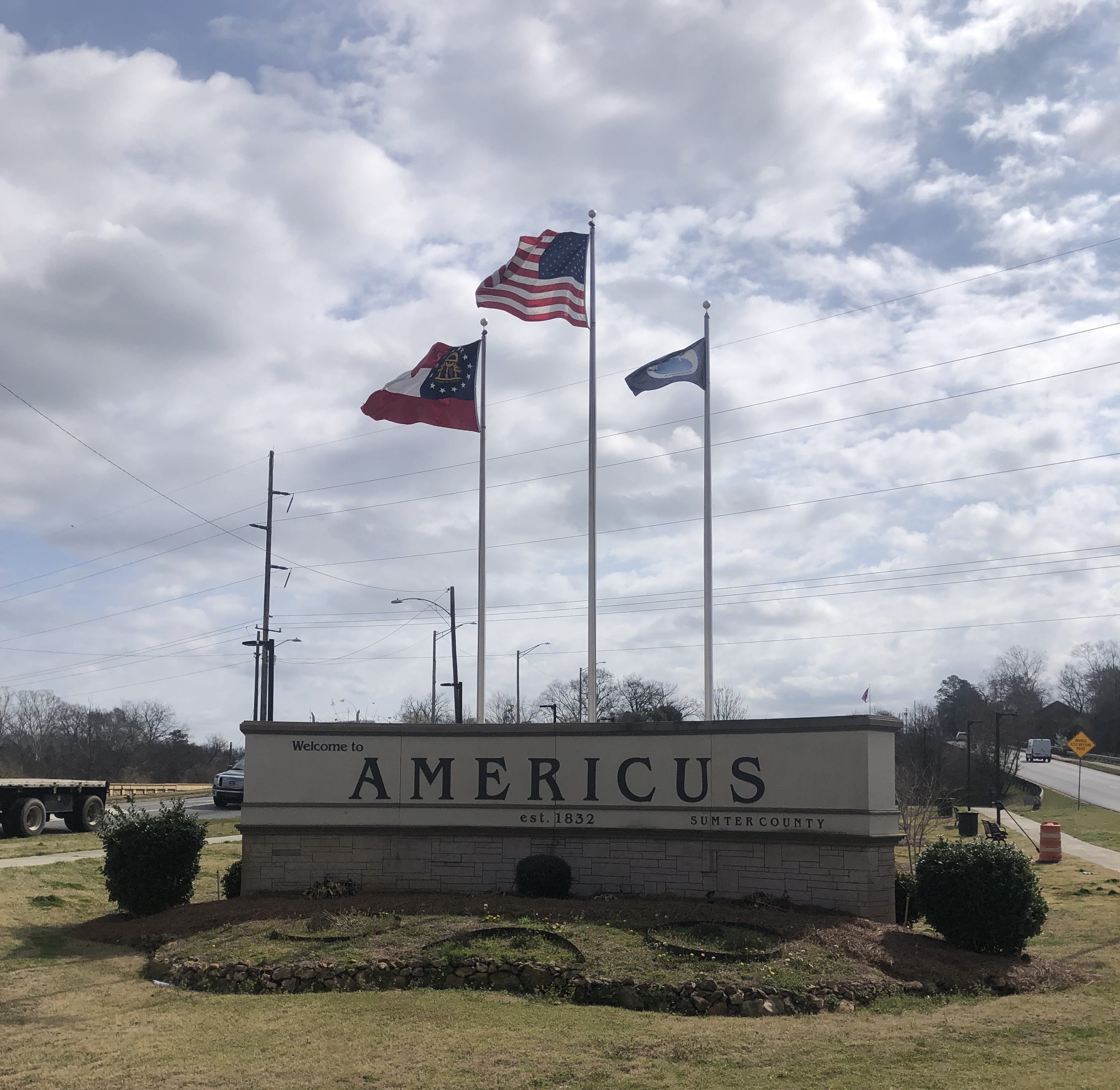Mayors, Commissioners, and City Council members brain storm community problems
Published 1:50 pm Sunday, May 4, 2025

- Leslie Hazle Bussey, head of GLISI, speaks at a meeting of Sumter Strong at the Leslie Civic Center.
Sumter Strong held a leadership dinner at the Leslie Civic Center on April 28. The organization encourages communication between the various leaders of Sumter County. The mayors of Andersonville, Leslie, Desoto, and Americus all attended, along with County Commissioners, City officials, the Sheriff, the Police Chief of Americus, and a number of other community leaders.
Americus Mayor Lee Kinnamon describes the meeting as unique, with few other counties having so many leaders who were willing to partner with others outside their respective government entity, even within their own county.
Head of the Georgia Leadership Institute for School Improvement, Leslie Hazle Bussey, organized the meeting. Leaders participated in a series of exercises where they listed issues facing the community, reasons that prevented change, and what kept the problems from being solved.
Lorelle Carey, with Georgia Power, described one wide spread problem she has faced in the local area. Coming from Metro Atlanta, she spent four years as a student at Georgia Southwestern University. “In Sumter County, one of the biggest things I noticed, and some of my other friends who came from a bigger city, is what we used to call Americus mentality.”
Carey and her friends used the term as a catch-all phrase for small-town thinking, something she found widespread. “There wasn’t much of an ambition, there wasn’t much of a stride, and when you challenged that, there was a lot of push back.”
She saw it frequently in the GSW student body when she tried to encourage her classmates to step out into situations that were unfamiliar. “A lot of students did not want to push past it.”
Carey has found the issue in a variety of places since first noticing it as a student. She attributes the strength of mindset to how it is passed down generationally. However, the result of no one challenging the status quo is that people become siloed. “No one wants to be rejected.”
Carey is an immigrant, and was challenged as an outsider. She responded by taking the effort to learn more about her new surroundings, which was a difficult process. “It requires for you to deny your own self.”
Carlyle Walton, president of Phoebe Sumter, also shared his experiences bringing change. Walton and his table had previously brainstormed the issues surrounding poverty.
He gave an example from Phoebe Sumter to demonstrate the problems surrounding the issue. The hospital paid $10 for their minimum wage three years ago when he arrived. “We’ve raised it to $13 an hour, and two months ago, we raised it to $15 an hour.” The decision resulted in criticism from community members. “I get calls from folks in this community who are highly successful, saying to me, ‘You’re messing our system up.’” Walton challenged them by asking which of them was able to live off of $12 an hour. For Walton, those unpleasant conversations highlight the hard situations people find themselves in who try and bring about positive change. “Those are difficult conversations to have, and most of us shy away from it.”






